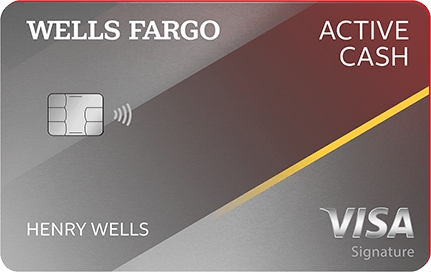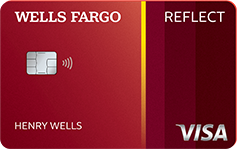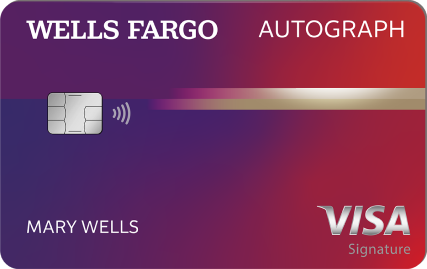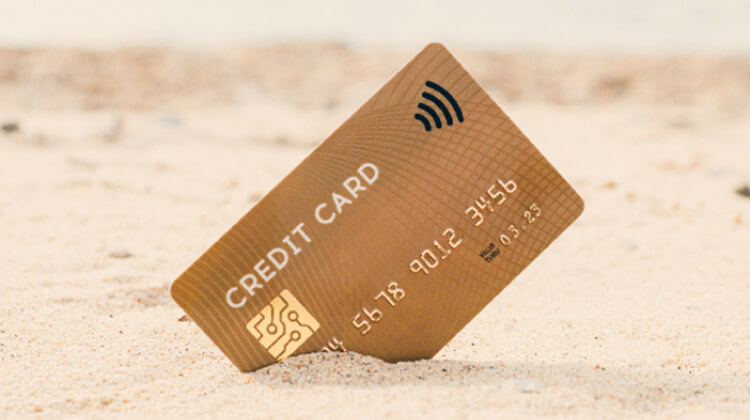
Are travel credit
cards worth it?
If you’re considering a new credit card, you may be wondering if you should get a travel credit card. You may have heard stories about people earning free flights and hotel stays using rewards earned with these cards, and you want to know more about how it works.
Consider this your guide to travel credit cards. You’ll learn what they are, how they work, the possible perks, and some of the benefits available to help you decide if a travel credit card is right for you.
What is a travel credit card?
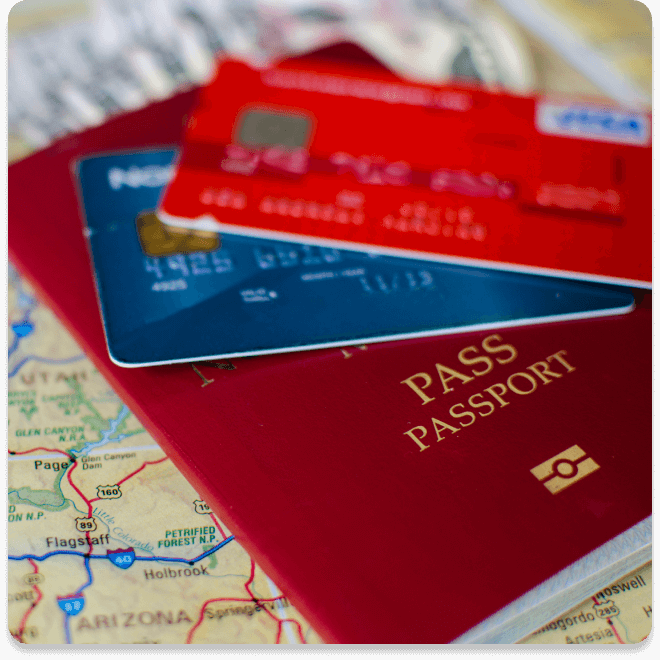
A travel credit card lets you earn rewards when you make purchases, often in the form of points or miles. You can redeem these to cover travel expenses such as airfare, hotel bookings, or even for cash. These cards sometimes have additional travel benefits and perks beyond their rewards program.
Annual fee options
Most of the major credit card issuers offer travel credit cards, some of which are co-branded with airlines, hotels or other companies. They will feature different fee structures that range from no annual fee cards to premium, elite cards with annual fees costing several hundred dollars.
If you are new to travel rewards or don’t travel often but want to offset the cost of family vacations, you may prefer a card with no annual fee.
- If you travel frequently and spend a lot on airfare and hotel stays, a premium card with an annual fee may be the best fit. These cards also typically provide VIP-level benefits like airport lounge access, priority boarding, and other perks.
Multiple rewards
Some travel credit cards can help you earn rewards for a specific travel brand (like an airline or hotel chain). Other travel cards are more flexible and offer a variety of redemption options.
Bonus categories
Choosing the best travel credit card for your needs really comes down to the type of traveler you are, as well as the type of spending you do. These cards may offer bonus earning categories like travel purchases, dining, entertainment, gas, and groceries. Finding a card that matches your spending style can help you earn more rewards.
Higher interest
One way to potentially maximize a travel rewards credit card is to pay your bill in full each month. If you have a card with a high interest rate, carrying a balance for a period of time can potentially negate any rewards you earn.

Types of travel cards

Not all credit cards for travel are the same. There are cards geared toward people loyal to a particular hotel chain or airline, as well as cards that offer more flexibility. Some cards have annual fees, while others don’t have an annual fee. Earning and redemption rules vary by card as well.
In general, there are three main types of travel credit cards.
1. Hotel credit card
If you prefer a particular hotel chain you may want to consider a hotel card. A hotel credit card is a co-branded card tied to a hotel loyalty program. They allow you to earn points that you can use toward free hotel stays. They also provide perks like late checkout or free room upgrades, and they may help you advance to elite status tiers.
Typically, using the card for hotel spending will earn the highest bonus points, and there could be other bonus spending categories as well. For example, some cards may give you one free night per year on your card anniversary.
2. Airline credit card
Airline credit cards are co-branded for a specific airline. This type of card helps you earn miles within their loyalty programs. Besides the miles you earn rewards through qualified purchases with your card, airline credit cards sometimes have benefits like priority boarding, in-flight discounts, and lounge access.
Being a cardholder can also help fast-track you into higher loyalty status to unlock even more perks. Depending on which card you choose, you can likely earn bonus points in certain spending categories.
3. General travel credit card
You may not be loyal to one airline or hotel chain, but maybe you want the opportunity to leverage credit card rewards to offset the cost of your trips. That’s where you can potentially look into more general cards that offer redemption flexibility.
Some general travel credit cards have online portals that let you book trips directly, while others allow you to transfer points to a travel partner’s loyalty program. You may also be able to redeem points for other rewards, including gift cards, cash rewards, or statement credits.
General travel credit cards may also provide benefits and travel perks like an annual travel credit, a refund for TSA PreCheck® or Global Entry, trip cancellation protection, and rental car insurance.

How do travel credit cards work?
Travel credit cards have a rewards earning structure that lets you earn points or miles when you make an eligible purchase. Some cards provide extra points in certain spending categories, while others let you earn a flat rate across purchases. Redemption options are geared toward travel.
To get you started with the points program, credit cards for travel often come with a welcome bonus or sign-up bonus. This is an opportunity to earn a large number of points at once. You typically have to meet a minimum spending requirement within a certain time frame, and if so, you’ll qualify for the bonus. Bonus amounts vary by card but can be worth hundreds of dollars.
How to choose a travel credit card
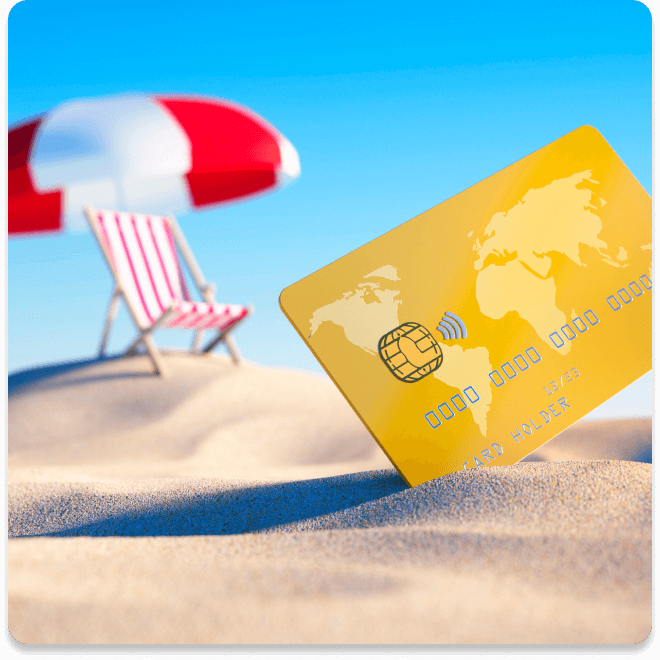
Consider the following information as you select from the available travel credit cards on the market today.
1. See if you’ll qualify
Travel rewards credit cards, like other cards, usually require a certain credit score to qualify. If a card has more premium offerings, it typically also has more stringent credit score requirements.
2. Decide your card level
The best travel card for beginners may be one that has a simple rewards program and does not have an annual fee. Cards with high annual fees may require more strategic spending and account management to maximize the card’s benefits.
3. Analyze your spending habits
Rewards rates vary by card. If you know you spend more on everyday things like groceries and gas, then a card that offers bonus points in those categories may be a better match for you than one that rewards travel or dining.
4. Think about your travel style
Do you prefer to stick with the same airline and hotel chain when you travel, or do you like more flexibility? How often do you go on trips? Are airport conveniences or hotel perks important to you? These questions can help you determine which type of travel credit card is best for you.

Perks of travel credit cards

Travel credit cards come with a variety of perks and benefits on top of the rewards programs. Here’s a list of some of the most common travel rewards credit card perks.
Free drinks, snacks, and meals
You may have access to free drinks and snacks on the perks menu. You could get free bottled water at check-in or complimentary food and beverages in an airport lounge.
No foreign transaction fees
When traveling overseas, consider looking for a card that does not charge foreign transaction fees (FTFs).
Free checked bags
If you choose a travel rewards credit card that provides a free or reduced checked bag fee or an airline voucher, this is an excellent benefit that can help reduce your travel expenses.
Hotel room upgrades
Hotel cards typically offer this perk, which bumps you up to a bigger and better room for free if there’s availability when you check in.
Canceled trip reimbursement
Some travel rewards credit cards help protect you from losing deposits or trip payments that you’ve already made if you need to cancel — even if they are otherwise nonrefundable.
Travel insurance
If an accident happens while traveling, the benefit of travel insurance can provide peace of mind.
Airport lounge access
You’ll find this perk on some higher-level travel cards that have an annual fee. For frequent travelers, enjoying a lounge pre-flight offers a relaxing place to wait or freshen up, and free food and drinks.
Free first class upgrades
Flying first class is a wonderful, but pricey, experience. With some cards, you may be able to score a free upgrade.

Are travel credit cards worth it?
Deciding if a travel credit card is worth it really comes down to your priorities and preferences. Whether you’re someone who takes just one or two trips a year or you take trips frequently, you can find a travel credit card to meet your needs.
If you do decide to give travel rewards a try, do your homework so you choose the best travel credit card for your needs.



